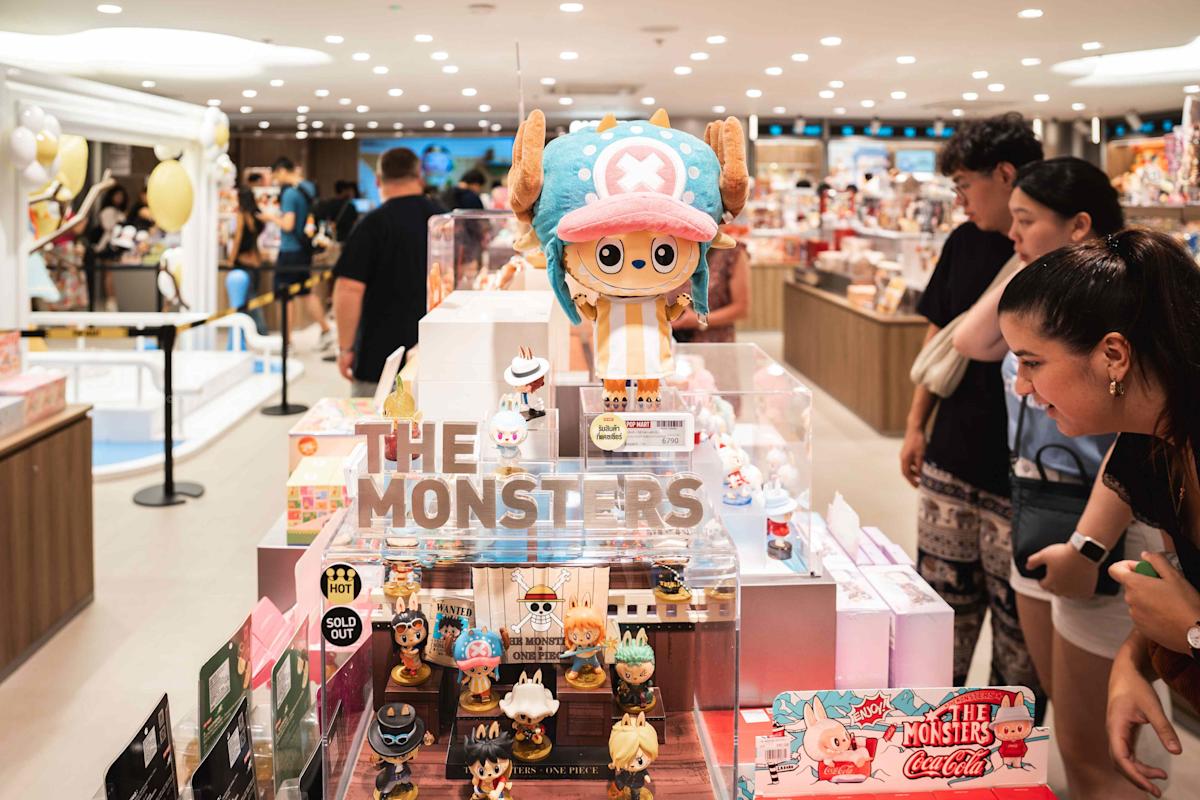Toy and Game Makers Target a ‘Kidult’ Market That Is Chasing Both Nostalgia—and Gains
Ploy Phutpheng / SOPA Images / LightRocket via Getty Images
Pop Mart, the company behind Labubu, has gained traction with consumers of different ages
-
Adults are a growing audience for toy and game companies, which are catering to them with products that nod to popular movies and bands from the ’80s and ’90s.
-
Social media and packaging that masks which version of a product a shopper is buying have fueled the phenomen, as have hot markets.
Do you remember the good old days? Game and toy makers are counting on it.
Companies are embracing their adult customers, announcing releases that evoke nostalgia for cultural touchstones of the ’80s and ’90s. Nintendo is reviving games designed for the tabletop Virtual Boy console. Lego is releasing a set inspired by the 1985 movie “The Goonies.” And Mattel (MAT) captured the “Home Alone” movie series and Backstreet Boys band in figurine sets.
Older generations—from college students attaching Labubu dolls to their backpacks to grandfathers putting model cars on display—are fueling the industry’s growth, with many funding their spending with gains from hot markets. Adults spent more money on toys for themselves than any other age group in 2024, according to market research group Circana. Shopping for adults continued to outpace buying for youth in the toy and game category in the first half of 2025, Circana said.
“Pop toys,” such as the small plush Labubu and Wakuku dolls, have gone from “niche items into lifestyle essentials for adults and millennials,” QuantaSing Group (QSG) CEO Peng Li said on a conference call this fall. (Labubu is a big-hearted, magical monster with a toothy grin, while Wakuku is a wild child-like character with round cheeks.)
Consumers “are seeking comfort, identity, a firm affirmation, and connection through their purchases, and pop toys deliver exactly that,” Li said during a June call, according to a transcript made available by AlphaSense. (China-based QuantaSing obtained the property rights to Wakuku through an acquisition announced earlier this year.)
Adults have a range of reasons for buying things like toys, games and collectibles that are typically aimed at children. Some, however, are looking for rare versions that may appreciate in value, often dropping cash they came into as markets have risen. In some cases, that has put new distance between the toy and game segment and its traditional audience.
Adults are often inspired to buy toys by the sense of nostalgia they evoke, according to surveys from consumer insights group CivicScience. But some shoppers are collecting items to join a community of fans or make a financial investment, the survey found.



Leave a Comment
Your email address will not be published. Required fields are marked *